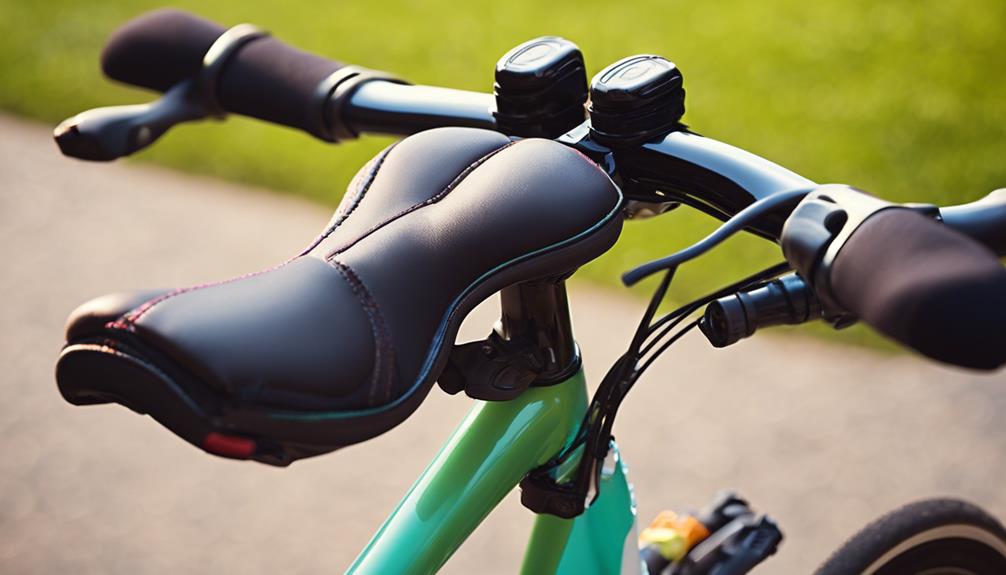Baja Mini Bikes have held a unique place in the hearts of enthusiasts and casual riders alike, embodying the spirit of fun and adventure that defines motorcycle culture. Originally designed for off-road use, these small, lightweight bikes captured the imagination of both children and adults. Their blend of simplicity, ruggedness, and affordability made them a popular choice for those seeking entry-level motorcycling experiences. However, despite their initial success and enduring popularity, Baja Mini Bikes have recently been discontinued, leaving many fans wondering about the reasons behind this decision.
In examining the factors surrounding the discontinuation of Baja Mini Bikes, it is essential to consider the historical context of their production, the key features that set them apart, and the broader market dynamics that have influenced consumer choices. By exploring these areas, we can gain a comprehensive understanding of not only why Baja Mini Bikes are no longer manufactured but also what this means for the future of mini bikes in general.What Happened To Jamis BikesHow To Whip A Motocross BikeHow To Convert Bicycle To Exercise Bike
Introduction to Baja Mini Bikes and Their Popularity
Baja Mini Bikes first gained attention in the late 20th century, favorably positioning themselves in the niche market of off-road motorcycling. They became synonymous with childhood memories of adventure, backyard races, and family outings, appealing to a wide demographic. Their simple, easy-to-handle design allowed young and inexperienced riders to experience the thrill of motorized biking without the intimidation often associated with larger motorcycles.
The bikes quickly amassed a devoted following, with many enthusiasts customizing them and creating vibrant online communities. They became a staple at recreational events and off-road parks, where riders enjoyed the bikes’ lightweight frames and maneuverability. The combination of affordability, accessibility, and adventure led to their widespread popularity, making the discontinuation of Baja Mini Bikes a significant topic of discussion among fans.
Historical Overview of Baja Mini Bikes Production
Baja Mini Bikes were initially manufactured by the Baja Motorsports company, which set out to create fun and accessible off-road vehicles. From their introduction, these mini bikes featured a robust design aimed at delivering reliable performance in various terrains. Over the years, Baja Motorsports expanded its offerings, introducing various models that catered to different riding styles and preferences.
From the classic models like the Baja Heat and Baja Warrior to more advanced iterations, these bikes garnered positive reviews for their durability and performance. However, despite their initial success, production faced challenges over the years, including fluctuating demand and increased competition from other manufacturers. This historical context is critical to understanding the decline in Baja Mini Bikes’ popularity and the decision to discontinue their production.
Key Features That Made Baja Mini Bikes Unique
One of the standout features of Baja Mini Bikes was their compact design, which made them easily transportable and suitable for various terrains. They were equipped with powerful yet economical engines that offered a thrill without excessive maintenance costs. Additionally, the straightforward mechanics allowed riders to perform basic repairs and modifications, creating a sense of ownership and personalization that many enthusiasts cherished.
Another key feature was their affordability compared to traditional motorcycles. Baja Mini Bikes provided an entry point for young riders and those on a budget, bridging the gap between pedal bicycles and full-sized motorcycles. This unique combination of features helped establish Baja Mini Bikes as a beloved option in the off-road biking community and contributed significantly to their initial popularity.
Factors Leading to the Discontinuation of Baja Mini Bikes
Despite their established popularity, several factors contributed to the discontinuation of Baja Mini Bikes. One significant factor was the evolving preferences of consumers, who gradually began favoring more advanced and versatile off-road vehicles. As technology progressed, riders started seeking bikes that offered better performance, safety features, and advanced capabilities, which left Baja Mini Bikes at a disadvantage in a rapidly changing market.
Additionally, economic fluctuations and supply chain disruptions affected manufacturers’ ability to produce and stock these bikes. The rising costs of materials and production, coupled with increased competition from other brands producing similar or more advanced models, created an unsustainable environment for Baja Mini Bikes. Consequently, these factors combined to lead to the decision to discontinue production.
Market Trends Impacting Mini Bike Popularity
The mini bike market, once thriving with a diverse array of options, has witnessed significant shifts in recent years. The growth of electric bikes and scooters has captured the attention of consumers, appealing to those seeking eco-friendly alternatives for transportation. This trend has led to a decline in interest for gas-powered mini bikes, which were previously favored for their performance and ruggedness.
Furthermore, the advent of more sophisticated off-road vehicles, such as ATVs and side-by-sides, has diverted potential mini bike buyers toward these options. These vehicles offer enhanced seating capacity, comfort, and safety features, making them more attractive to families and adventure seekers. As a result, the mini bike segment, including Baja Mini Bikes, has struggled to maintain its foothold in an increasingly competitive market.
Safety Concerns Associated with Baja Mini Bikes
Safety concerns have long been a topic of discussion regarding mini bikes, including those produced by Baja Motorsports. The lightweight and compact design of these bikes can sometimes lead to stability issues, particularly at higher speeds or on uneven terrains. Riders, especially inexperienced ones, may find it challenging to maintain control, increasing the risk of accidents and injuries.
Furthermore, the lack of advanced safety features, such as anti-lock brakes or traction control, rendered these bikes less safe compared to their modern counterparts. As awareness of safety issues in motorcycling increased, parents were often hesitant to allow their children to ride Baja Mini Bikes. This growing concern contributed to the decline in sales and popularity, ultimately influencing the decision to discontinue the product line.
The Role of Regulatory Changes in Discontinuation
Regulatory changes also played a significant role in the discontinuation of Baja Mini Bikes. As government agencies began to implement stricter regulations on emissions and safety standards, many manufacturers struggled to keep up with compliance requirements. Baja Mini Bikes, in particular, were affected by these changes, as their engines did not meet the newer, more stringent environmental regulations.
The increased costs associated with re-engineering these bikes to meet compliance led many manufacturers, including Baja Motorsports, to reconsider their product lines. Rather than investing in costly modifications, the company chose to focus on more viable options that aligned with regulatory requirements. This shift marked a pivotal moment in the discontinuation process, as the inability to adapt to changing regulations rendered Baja Mini Bikes less competitive in the marketplace.
Consumer Preferences Shifting Away from Mini Bikes
As consumer preferences evolved, many riders began seeking more capable machines that offered a broader range of features and functionalities. The rise of electric bikes and hybrid models catered to environmentally conscious consumers, while advancements in off-road technology appealed to those desiring enhanced performance. As a result, traditional gas-powered mini bikes like those produced by Baja Motorsports lost their appeal.
Additionally, the shift towards larger, more powerful motorcycles and other off-road vehicles further eroded the market for mini bikes. The desire for increased safety, comfort, and performance led many former Baja Mini Bike enthusiasts to explore other options better suited to their needs. This significant shift in consumer preferences contributed to the declining sales of Baja Mini Bikes, ultimately pushing the company to discontinue production.
Alternatives to Baja Mini Bikes in the Market Today
In the wake of Baja Mini Bikes’ discontinuation, several alternatives have emerged in the market catering to the mini bike enthusiast community. Brands such as Coleman Powersports and Razor have introduced similar models that provide functionality and performance while addressing some of the safety concerns previously associated with mini bikes. These alternatives often include updated safety features and enhanced designs, making them more attractive options for consumers.
Additionally, the growing popularity of electric mini bikes and scooters has opened up new avenues for riders seeking compact and eco-friendly vehicles. Companies like Super73 and Juiced Bikes offer electric models that deliver similar thrills while ensuring compliance with modern regulations. As a result, the market has diversified, providing enthusiasts with a range of options as they navigate the new landscape of mini biking.
The discontinuation of Baja Mini Bikes marks a significant change in the mini bike landscape, reflecting broader trends in consumer preferences, safety concerns, and regulatory shifts. While these beloved bikes may no longer be in production, their legacy lives on through the memories of countless riders who cherished their experiences. The emergence of alternatives and new technologies offers hope for the future of mini biking, ensuring that the spirit of adventure and fun continues, albeit in new and innovative forms. Enthusiasts can take solace in knowing that the market is evolving, providing opportunities for future generations to enjoy the thrill of two-wheeled adventures.


